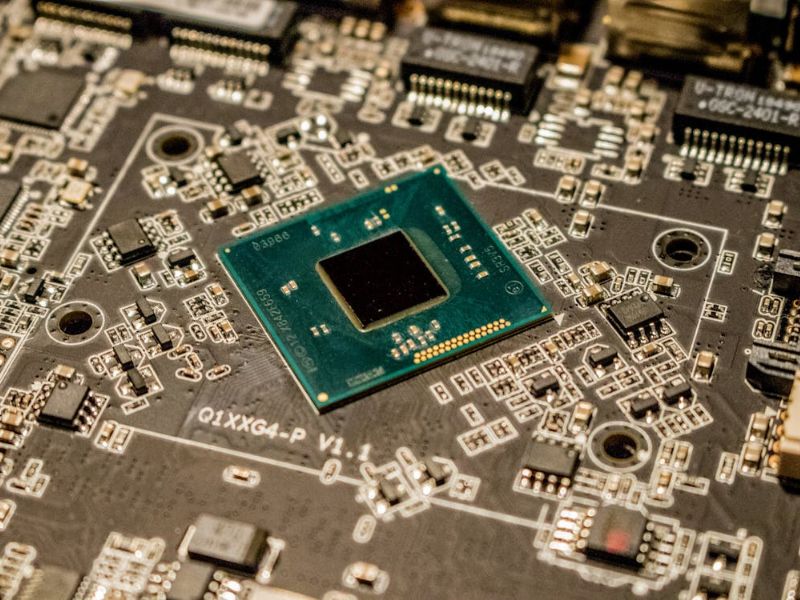
《Technology》PCB industry is stable, accounting for 28.4% of total US imports

Business Times
February 3, 2025
Author: Times Information Reporter: Zhang Hanqi
February 3, 2025
Author: Times Information Reporter: Zhang Hanqi
[Times reporter Zhang Hanqi reports from Taipei] Trump's 2.0 policy has brought more uncertainties to the global industry, such as export restrictions, upgraded technology control and tariff barriers, which will pose additional challenges to the global supply chain. Under the situation of deepening technological decoupling, according to ISTI data in 2024, the amount of PCB imports from Taiwan to the United States has grown significantly, reaching US$610 million, accounting for 28.4% of the total US imports, a significant increase compared to 21.9% in 2023, highlighting Taiwan's competitive advantages and solid position in the US market.
With the intensification of geopolitics, the rise of protectionism, technological decoupling and supply chain restructuring, the global PCB industry is undergoing profound changes. The U.S.-China trade and technology war has further intensified during the Biden administration, which has not only pushed Europe and the United States to accelerate localized manufacturing, but also prompted major PCB industries such as China, Japan, Taiwan, and South Korea to re-position themselves in Southeast Asia to diversify risks and enhance global market competitiveness. As a major global PCB supply center, Taiwan has been heavily dependent on the United States and mainland China in the export market in the past. However, as technological decoupling deepens, Taiwan's PCB exports to the United States and China show completely different development trends.
According to ISTI data in 2024, the amount of PCB imports to the United States from Taiwan has grown significantly, reaching US$610 million, accounting for 28.4% of the total US imports, a significant increase from 21.9% in 2023, highlighting Taiwan's competitive advantage and solid position in the US market. In contrast, Taiwan's PCB exports to mainland China are affected by technical controls and policy risks, and with the improvement of mainland China's manufacturing technology, the export share has dropped sharply from the peak of 60.4% in 2019 to 34.2% in 2023.
TPCA said that in order to respond to the ever-changing situation, TPCA has continued to pay attention to the dynamics of PCB peers in China, Japan and South Korea for many years. Now, under geopolitics, the distribution of global PCB clusters has undergone tremendous changes. Trump 2.0 will be officially launched in 2025, which will further affect the direction of industrial policies in the United States, Europe, India and Southeast Asia. In the United States, as national defense needs drive the development of the local PCB industry, in 2024, the US PCB market size will reach US$3.98 billion, with a global market share of 4.9%, ranking fifth in the world. The main products include multi-layer boards and HDI boards, which are used in high value-added markets such as defense aerospace, industrial control and medical equipment.
Furthermore, in recent years, the US government has promoted the localization of the industry through the National Defense Authorization Act and the Chip and Science Act; for example, TTM invested in a factory in New York State to produce UHDI boards to meet military needs. However, the domestic PCB production capacity in the United States is limited, and imports rely on Taiwan and mainland China. Looking ahead to 2025, driven by defense orders and data center demand, the US PCB market is expected to grow by 6.8%.
In Europe, Europe is also promoting FOUCSING to strengthen the independent resilience of PCBs. TPCA stated that the size of the European PCB market will be approximately US$2.1 billion in 2024, accounting for 2.6% of the global market. Among them, Austria's AT&S company has performed outstandingly in the field of high-end substrates, and its products are widely used in the automotive, semiconductor and industrial control markets. However, Europe faces challenges of high labor and energy costs, and the Russia-Ukraine war has further exacerbated energy price volatility, limiting its industrial competitiveness.
In order to enhance the European PCB industry, the EU proposed the Full European HDI PCB and Assembly Supply Chain for Space and Industrial Segments (FOUCSING) in March 2024, hoping to establish a competitive, sustainable and independent PCB/HDI and assembly supply chain for the EU in the space and industrial fields, and consolidate its market position through technological innovation and policy support.
Related link: https://www.ctee.com.tw/news/20250203701150-430503
【Disclaimer】
The content of this article only represents the author’s personal views and has nothing to do with Creating.
The content, text and originality have not been verified by this website. This website does not make any guarantee or commitment to this article and all or part of its content, authenticity, completeness, or timeliness. It is for readers' reference only. Please verify the relevant content on your own.
Creating Nano Technologies, Inc.
59 Alley 21 Lane 279, Chung Cheng Road, Yung Kang City, Tainan, TAIWAN
TEL:886-6-2323927 FAX:886-6-2013306 URL: http://www.creating-nanotech.com
